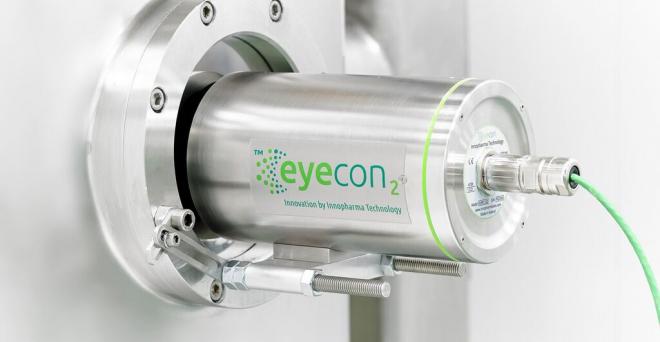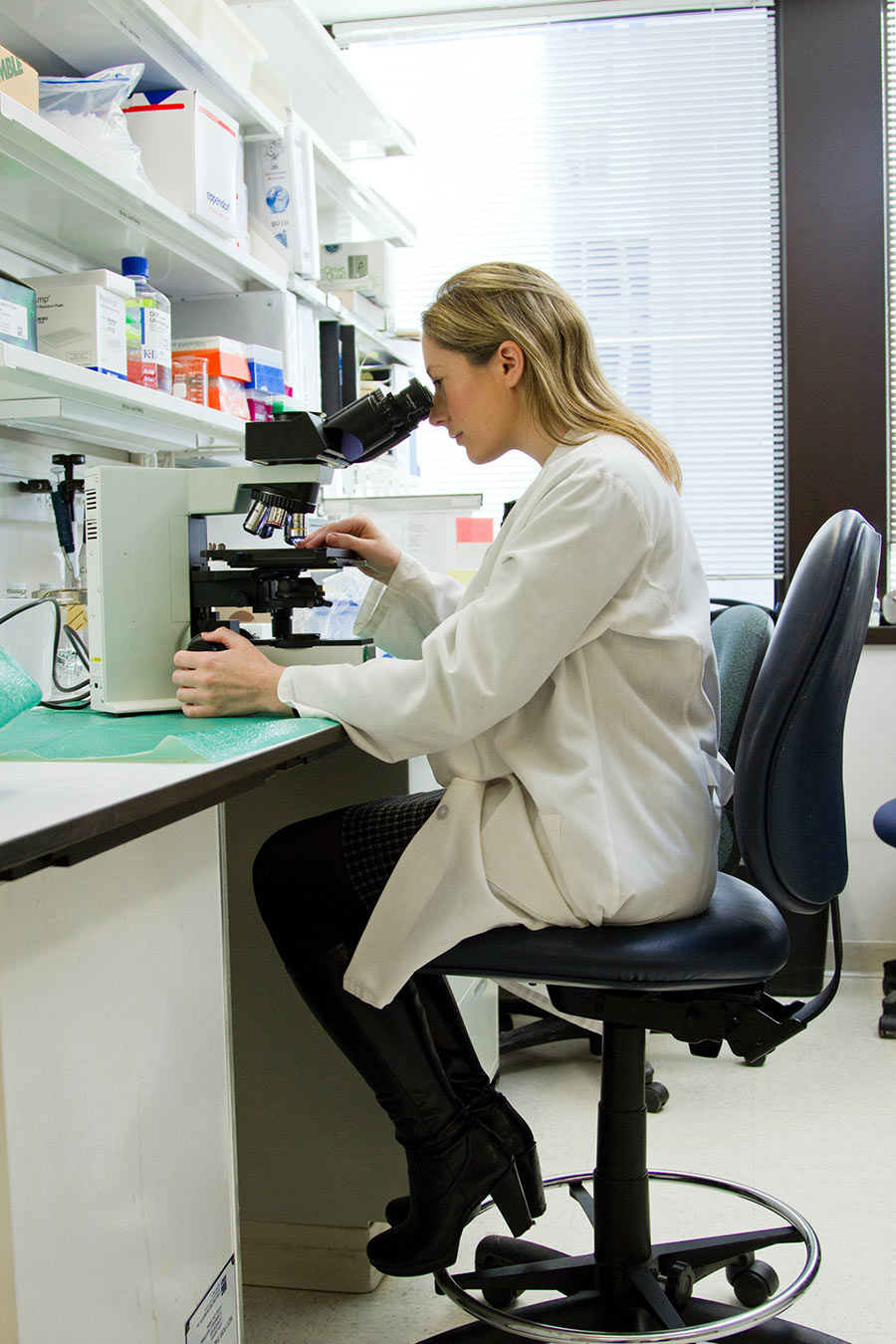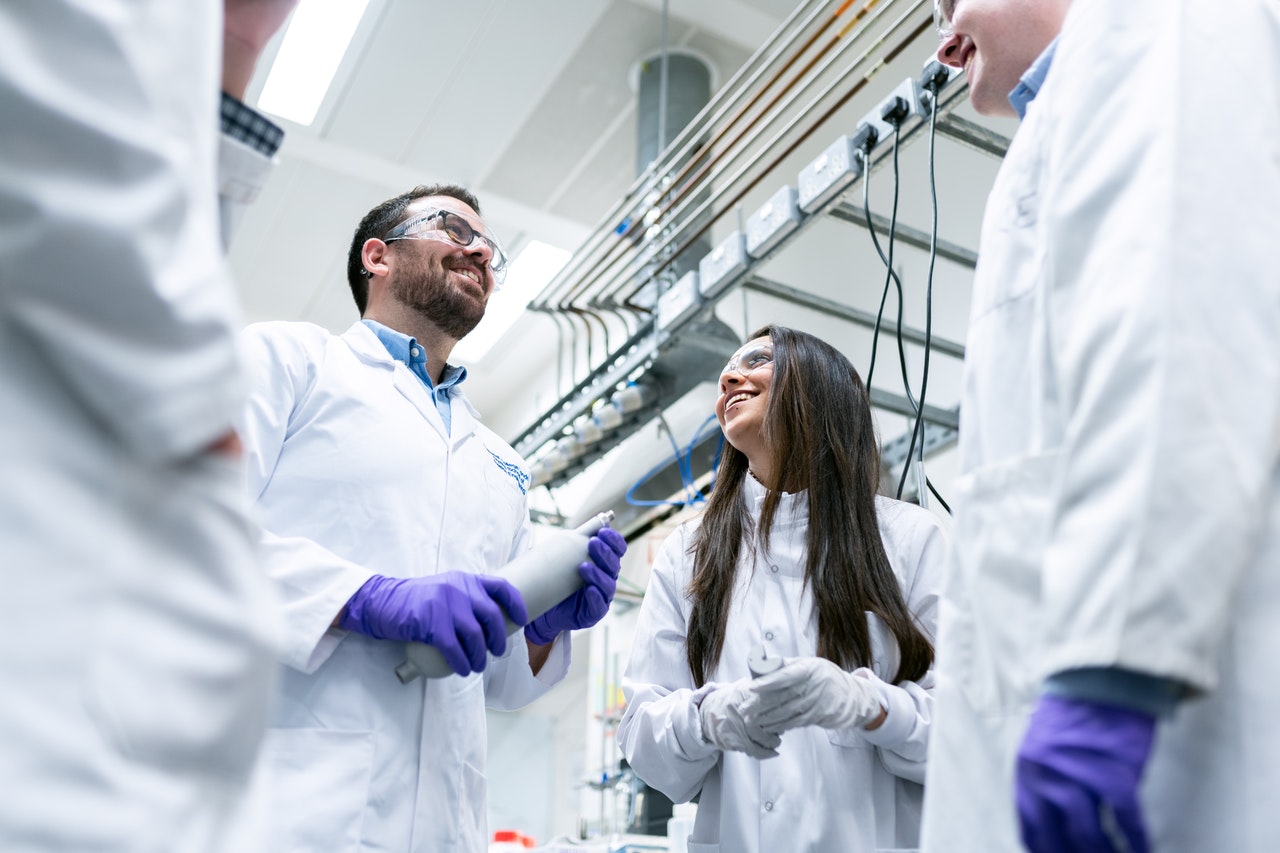Process Analytical Technology: A Clear Guide to PAT and How to Get Started in the Industry

Innopharma Technology Group is at the forefront of developing technologies that enable pharmaceutical, food and chemical manufacturers to better understand their manufacturing processes.
In this post, we’ll go over what Process Analytical Technology (PAT) is and how you can get started in the industry!
What is Process Analytical Technology?

Process Analytical Technology spans multiple industries. So, finding a career in an industry you’re interested in will be relatively easy. You can work at a biotechnology company and help develop medicines to treat diseases like cystic fibrosis. Or you can work in process analytical technology at a biopharmaceuticals company to help prevent illnesses through vaccines. Not to mention, there are countless positions in plenty of other industries, such as working for a manufacturing company that’s working to make household products, like dryers, more efficient. The choice is yours!
What are the Benefits of PAT

There are many benefits of process analytical technology for businesses:
- Reduced downtime
- Improved yields
- Faster process development and scale-up
- Faster technology transfer and process troubleshooting
All of these benefits lead to improved quality, efficiency and productivity in manufacturing at a time of increasing competition within the process industry.
How can PAT help Businesses?
PAT can help businesses by providing more efficient routines and processes for pharmaceutical products. By doing so, they’ll help businesses reach the ultimate end goal of producing consistent quality products time after time.
Here are just a few examples of how PAT has helped businesses find more success:
Examples of Successful Process Analytical Technologies
Examples of successful PAT technologies that have been successfully developed and commercialised by the Innopharma Technology group include the Eyecon™ and Multieye™.
- Eyecon
Eyecon is a particle characteriser capable of real-time in-line and at-line particle size measurement. Eyecon is used to monitor particle size distribution. And it detects process endpoints during formulation development, scale-up, tech transfer and commercial manufacturing in processes such as granulation and coating.
- Multieye
Multieye is a multipoint Near-Infrared (NIR) spectrometer. It’s designed for real-time in-line process monitoring. Multieye is an innovative concept incorporating a single sensor with four discrete channels. These channels allow concurrent measurements from up to four positions. They overcome the representative sampling limitations of single point devices. Multieye enables the measurement of chemical and physical parameters in various processes such as moisture, blend homogeneity, density, or segregation.
Several other technologies remain in development. These technologies span the food, chemical and pharmaceutical sectors. They include applications to characterise, monitor and control the production of infant formula during spray drying, chemical imaging for equipment cleaning validation, in-line monitoring of crystallisation processes during active pharmaceutical ingredient (API) manufacture and content uniformity measurement of tablets.
The Harnessing of Big Data and The Internet of Things (IoT)

The application of PAT leads to the generation of large and complex datasets also known as ‘Big Data’. This harnesses the storage, distribution and processing capacity of ‘The Cloud.’ In turn, innovation opportunities for Innopharma Technology have progressed. Now it is possible to apply advanced analytics against PAT generated Big Data to help decode complex manufacturing processes. This is possible by harnessing the Internet of Things (IoT).
The concept of IoT is one of the most significant trends in technology today. It’s creating a wave of excitement in the process automation industry. The IoT vision is of machine-to-machine (M2M) connectivity and of an instrumented driven world of intelligent sensors and actuators communicating across the ethernet to improve performance and efficiency. IoT is about the creation of “smart devices” and processes.
Innopharma Technology, IoT, and PAT in the MedTech Industry
Innopharma Technology has joined the IoT revolution with a vision that involves coupling, sensing and control with Big Data and analytics to accomplish advanced levels of optimisation and efficiency. Innopharma Technology is driving this innovation through the development of SMART-GRAN™ a Self-Guided Fluidised Bed Granulation Solution targeted at the pharmaceutical, food, nutritional and cosmetics industries. The SMART-GRAN solution incorporates a suite of Process Analytical Technology (PAT) analysers for in-process monitoring and closed-loop control of the Critical Process Parameters (physical, chemical and moisture properties of the granulate) coupled with soft-sensoring, for obtaining consistent product quality and safety.
Through a cloud-based data management platform, the SMART-GRAN solution enables historical data to be available for Quality-by-Design process optimisation for gaining resource efficiencies for improved competitiveness. This enables intelligence-based manufacturing (IbM) concepts that focus on harnessing the complementary power of data, modelling, engineering and IT infrastructure by transforming data into knowledge and ultimately intelligence, to equip the industry to move to proactive manufacturing strategies that deliver predictable manufacturing performance.
Innopharma’s research efforts continue to result in some great technology. It also continues to result in the growth of strong collaborative relationships with pharmaceutical, food and MedTech companies, their process equipment manufacturers, and their analytical technology partners. This places Innopharma in a unique position of understanding the needs of industry and focusing R&D efforts to respond with solutions that make the best use of emerging technologies.
The Secret of Success in the Process Analytical Technology Industry
What’s the secret of Innopharma’s success? Quite simply it’s our winning team! Our researchers are multi-disciplined. They range from backgrounds in mechanical engineering and electronics to software development, physics, and biologics. The team are doctorate-led experts with domain expertise and experience in industrial experience. The entire team is innovation-driven, with a spirit of collaboration that has a focus on commercialisation.
How to Develop a Career Path in Process Analytical Technology
Developing a career path in process analytical technology has never been a smarter decision! So how do you do it?
First, you’ll need the proper training. To eventually become a senior scientist in the process analytical technology field, you may ultimately need a PhD in chemical engineering, biochemical engineering, biochemistry, or analytical chemistry.
For entry-level positions, you’ll be able to land a job with a bachelor’s degree in a related field. To move ahead in your career path in process analytical technology, you’ll need many years of work experience if you plan to only obtain a bachelor’s degree. However, you can speed up the process by following up your bachelor’s degree with a master’s. As you work towards your degrees, you’ll learn the necessary skills to successfully carry out a position in PAT. You’ll learn problem-solving and data analysis skills which are crucial to finding success in your position. And you’ll, of course, learn the PAT methods and models for real-time in-process controls.
In the meantime, you can work on soft skills that will carry over into any PAT position you choose to take in the future. Choose classes that allow you to work in a team setting to practice that particular skill, as you’ll need it when you work with a team of PAT professionals. Practice your written and oral communication skills, too! Those will help others better understand you no matter what job you land.
Types of Process Analytical Technology Jobs
Believe it or not but PAT positions are available across many industries. You can choose to find a PAT position in industries like medical technology (MedTech), biopharmaceuticals, and biotechnology. A PAT position is available for just about any scientific industry you can think of. That’s because, at the heart of the job, a process analytical technology scientist is working to benefit businesses by streamlining consistent, quality products.
A Day in the Life of a Process Analytical Technologist
Depending on your position, your day to day responsibilities may look different from job to job and industry to industry. But ultimately, you’ll be working on the same common goal with your team of other process analytical technology scientists: to develop, implement, and introduce new in-line, on-line, and at-line real-time or “near” real-time analytical technology to support the product you’re working with.
You’ll collect data from your PAT models and analyse them to make sure things are running smoothly and moving towards your end goal.
Innopharma’s Process Analytical Technology Training Courses
If a position in process analytical technology strikes your interest, then you’ll want to get started on the proper training courses to kickstart your career! Taking process analytical technology training courses and/or working towards a bachelor’s degree is the first stepping stone. We can help you with that through our Innopharma Process Analytical Technology training courses! We offer an 11-month training course in process technologies for the pharmaceutical and MedTech industries.
You can join our team of hardworking, driven professionals who work to help you start your career in industries like process analytical technology! You can check the specific courses below:
- BSc in Process Technologies – Pharma and MedTech
- BA (Honours) in Pharmaceutical Business Operations
- MSc in Pharmaceutical Business and Technology
Want to learn more about how we can get you started in a PAT position? Check out all of our available courses here!
And to read more about our current research activities, click here!



















